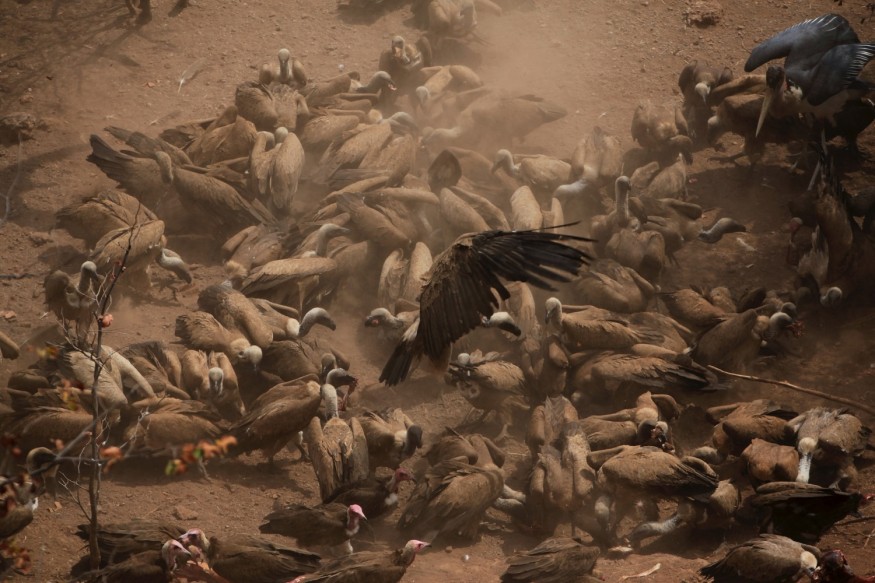
The mysterious deaths of 40 vultures that were discovered near a water tower in Fuquay-Varina, North Carolina, are being investigated by wildlife experts.
The town hangs stuffed vulture effigies on the tower to scare away live birds that were roosting and dropping waste on the tower, and the town discovered dozens of dead birds mostly within a 100-yard radius of the tower.
The carcasses were dispersed all over the place, looking like they had fallen from the sky.
Poison
American Wildlife Refuge employee Paul MacKinnon thinks the birds may have been poisoned.
Alternatively, other authorities on wildlife think it might be the avian flu. Reports from the eastern part of the state say that a highly contagious bird flu earlier this week is affecting the area, according to a WITN article about a wildlife sanctuary.
However, experts believe it seems strange that only vultures would have been affected if the deaths were due to avian flu.
In North Carolina, it's against the law to kill or poison a vulture.
Steve Stone, director of animal care at American Wildlife Refuge, went out to the area to see the damage and take a video, which posted to Facebook.
According to Stone, they discovered between 40 and 50 dead vultures. He claims that the deaths of these scavenger birds will cause more serious issues in the community. He claims that vultures consume about 39,000 pounds of animal carcasses annually.
In his opinion, a small amount of bird poop on windshields is worth it considering the benefits of having scavenger birds. Buzzard or turkey vulture shooting or poisoning is forbidden, the town wants to remind everyone. They advise letting the effigies handle the vultures' scare tactics.
The State Wildlife Resources Commission said that avian influenza was "almost certainly" to blame for the vulture deaths. Since November, the commission claims it has recorded additional bird flu deaths in this general area.
To ascertain whether the vultures were killed by poison or bird flu, Stone is submitting two dead vultures to Rollins Lab in Raleigh for testing, WRAL News reports.
Scavenger Birds
Scavengers are crucial to the food chain. They prevent animal carcasses, also known as carrion, from entering an ecosystem. These organic materials are broken down by scavengers and recycled as nutrients into the ecosystem.
Some birds, like vultures, are scavengers that only consume the remains of dead animals.
Due to their numerous biological adaptations, vultures are excellent scavengers. The majority have keen eyesight and an acute sense of smell. They employ these acute senses while soaring high over land to locate rotting carrion. The talons and beaks of vultures are weaker than those of raptors, or hunting birds.
Vultures do not need to secure or overpower their prey, whereas raptors need sharp beaks and talons to kill. Many vultures also lack feathers on their heads, making them bald birds. According to National Geographic, this is so that fragments of carrion that may contain dangerous bacteria are kept from adhering to the bird's feathers and infecting it.
Related article : Wildlife Organizations Offer $51k Reward For Leads on Death of 6 Endangered Gray Wolves Poisoned in Washington
© 2025 NatureWorldNews.com All rights reserved. Do not reproduce without permission.





